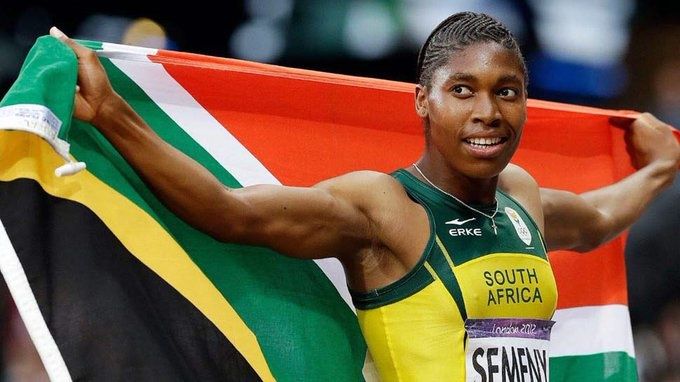Caster Semenya Loses Landmark Case Against the IAAF Over Controversial Testosterone Rules
"The decision of Cas will not hold me back. I will once again rise above and continue to inspire young women and athletes in South Africa and around the world," says the athlete.
The Court of Arbitration for Sport (Cas) has rejected South African Olympic gold medalist,Caster Semenya's, challenge agains the IAAF's implementation of a new eligibility requirement that would force female athletes with naturally higher testosterone levels to either take medication in order to compete or to compete in other races , BBC Sport reports.
Last June, Semenya took legal action against the board, calling the rule discriminatory and unfair. "I just want to run naturally, the way I was born," said the 28-year-old athlete at the time.
The South African government launched the #NaturallySuperior movement in February to support the athlete and her right to compete as she is. The Minister of Sport, Toko Xasa, described the requirements as being a "gross violation of internationally accepted standards of human rights."
Despite the rule's apparent bias, Cas has ruled in favor of the IAAF.
In a statement on Wednesday, Cas claimed it had "serious concerns as to the future practical application of the rule." It admitted that the rule is, in fact, discriminatory, but claimed the discrimination was "necessary, reasonable and proportionate" to protect "the integrity of female athletics."
In response to the ruling, Semenya criticized the IAAF for consistently targeting her, but noted that she has no intention of letting the ruling stop her. "For a decade the IAAF has tried to slow me down, but this has actually made me stronger," said the athlete. "The decision of Cas will not hold me back. I will once again rise above and continue to inspire young women and athletes in South Africa and around the world."
Earlier today, the athlete tweeted a graphic, which read "sometimes it's better to react with no reaction."
Many online have expressed anger about the ruling, with several calling out the IAAF for its treatment of Semenya throughout the years. Several are pointing out the unjust racial and gender dynamics that have surrounded the federation's decision.
